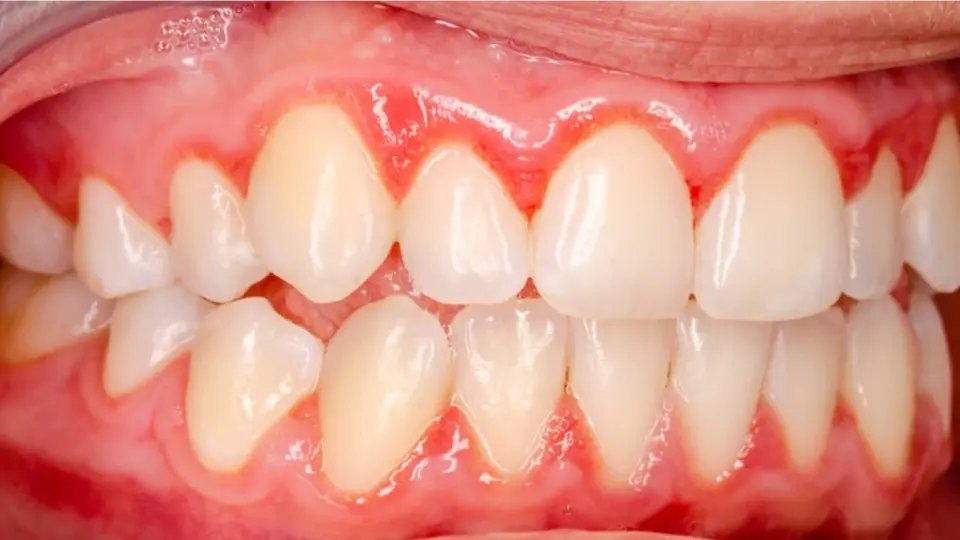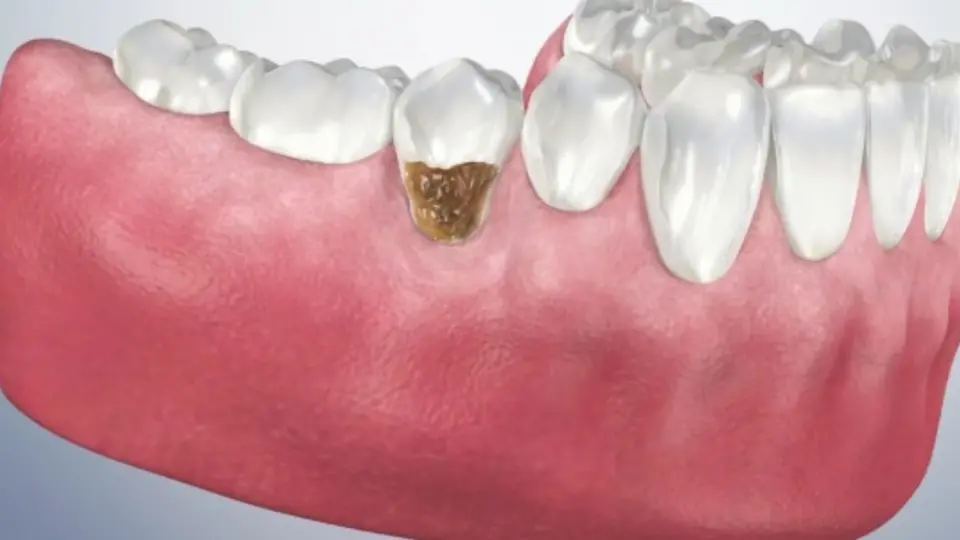Most people visit the dentist to get their teeth cleaned or a cavity filled, but there’s a lot more happening in that chair than just a routine checkup. Dentists are often the first to spot serious health issues—sometimes before a doctor does. Conditions like diabetes, heart disease, and even cancer can show early signs in your mouth, long before other symptoms appear.
Swollen gums, chronic bad breath, or unusual sores could be red flags for something bigger. Since dentists see patients more frequently than doctors, they’re in a unique position to catch these warning signs early. That means a simple dental visit could lead to an early diagnosis that makes all the difference.
So, the next time you sit back in that chair, know that your dentist isn’t just looking at your teeth—they’re keeping an eye on your overall health.
How can a dentist detect diseases before a doctor?
Dentists are often the first to detect certain diseases before a doctor due to their unique access to the oral cavity and the ability to spot early warning signs of systemic conditions. Here’s how they can detect diseases early:
- Oral Cavity Examination: The mouth can offer important clues to a patient’s health. Dentists examine the gums, tongue, and teeth for abnormalities that might indicate systemic issues. For example, swollen gums can be a sign of diabetes or cardiovascular disease.
- Gum Disease as an Indicator: Periodontal (gum) disease has been linked to conditions like diabetes, heart disease, and stroke. Dentists can identify the early stages of gum disease, which may indicate these underlying health problems.
- Oral Cancer Detection: Dentists routinely check for signs of oral cancer, such as lesions or unusual mouth growth. Early detection of oral cancer can lead to a better prognosis, as it is more treatable in its early stages.
- X-rays and Imaging: Dental X-rays help diagnose dental issues and reveal hidden conditions like bone loss (which may suggest osteoporosis) or early signs of tumors.
- Changes in Oral Health: Dentists can identify changes in the mouth that may signal systemic diseases, such as unusual dryness (linked to autoimmune diseases) or changes in the color of the gums or tongue (which could indicate nutritional deficiencies or infections).
Through these examinations, dentists are often the first line of defense in identifying health issues beyond the scope of dental care, making regular dental visits an essential part of overall health maintenance.
What health conditions can a dentist identify during a checkup?
During a routine dental checkup, dentists can identify various health conditions, both oral and systemic, that may indicate underlying health issues. Here are some of the conditions a dentist can detect:
- Gum Disease (Periodontal Disease): Dentists can identify early signs of gum disease, which is linked to conditions like diabetes, heart disease, and stroke. Swollen, bleeding gums or pockets between teeth may indicate the presence of gingivitis or more severe periodontal disease.
- Oral Cancer: Dentists perform visual exams to check for abnormalities such as lesions, sores, or growths in the mouth, throat, and tongue, which could signal oral cancer. Early detection is key to improving the chances of successful treatment.
- Diabetes: Dentists may notice symptoms like dry mouth, gum disease, or frequent infections that can be linked to uncontrolled diabetes. If these signs appear, they can refer patients for further testing.
- Heart Disease: Gum disease has been shown to increase the risk of heart disease. Dentists can identify periodontal issues that may point to cardiovascular problems, urging patients to consult their doctor.
- Nutritional Deficiencies: Issues such as mouth sores, swollen gums, or tooth decay may indicate vitamin deficiencies (e.g., vitamin C or calcium). Dentists can advise patients to improve their diet or seek further medical advice.
- Osteoporosis: A dentist may notice signs of bone loss or weakening in the jaw, which can be linked to osteoporosis. X-rays can reveal bone density issues that might require medical evaluation.
- Sleep Apnea: Dentists can identify signs of sleep apnea, such as teeth grinding or a recessed jaw, and recommend further evaluation from a sleep specialist.
Through thorough dental exams, dentists play a critical role in identifying these health conditions early, allowing patients to take proactive steps in managing their overall health.
Why do dentists look for signs of systemic diseases?
Dentists look for signs of systemic diseases during routine checkups because the mouth can provide valuable clues about a patient’s health. Many systemic conditions manifest with oral symptoms that dentists are trained to recognize. Here are the key reasons why dentists look for signs of systemic diseases:
- Early Detection of Health Issues: The mouth is often the first place to show signs of underlying health conditions. Early detection allows patients to seek timely medical treatment, potentially improving outcomes for conditions such as diabetes, heart disease, or even cancer.
- Oral Health and Overall Health Connection: The condition of your gums, teeth, and oral tissues can be directly linked to your overall health. For example, gum disease is often associated with heart disease, diabetes, and stroke. Dentists can spot these links and refer patients for further testing.
- Preventing Complications: Recognizing early signs of systemic diseases allows dentists to help prevent complications that could worsen oral health. For example, untreated diabetes can lead to gum disease or dry mouth, so detecting it early can help manage both conditions.
- Comprehensive Care: Dentists take a holistic approach to patient care, which includes looking for signs of systemic conditions. This ensures they’re not just treating teeth but addressing potential health risks.
- Building Patient Trust: By identifying potential health issues early, dentists build trust with their patients, showing that they care about their overall well-being, not just their oral health.
Dentists play a crucial role in the early detection of many systemic diseases, making regular checkups essential to maintaining overall health.
How does oral health reveal underlying medical issues?
Oral health can reveal underlying medical issues because the mouth often reflects what’s happening in the rest of the body. Many systemic conditions manifest through oral symptoms that dentists are trained to detect. Here’s how oral health can indicate underlying medical problems:
- Gum Disease and Heart Disease: Gum disease (periodontitis) is linked to heart disease. The inflammation caused by gum infections can contribute to developing heart conditions, as bacteria from the mouth can enter the bloodstream and affect heart health.
- Oral Symptoms of Diabetes: Diabetes can lead to dry mouth, gum disease, and slow healing of oral tissues. These symptoms can indicate uncontrolled blood sugar levels, prompting a dentist to refer the patient for further medical evaluation.
- Mouth Sores and Autoimmune Disorders: Chronic mouth sores or canker sores may signal autoimmune disorders, such as lupus or Crohn’s disease. Dentists can identify these signs early and help patients seek appropriate treatment.
- Tooth Decay and Nutritional Deficiencies: Severe tooth decay or gum problems can indicate poor nutrition, such as a lack of vitamins or calcium. Dentists can advise patients to address these deficiencies before they affect overall health.
- Oral Cancer: Dentists routinely check for signs of oral cancer, such as lumps or persistent sores in the mouth. Early detection can lead to timely treatment and better survival rates.
By observing changes in the mouth, dentists can identify signs of systemic conditions, prompting patients to seek further medical care and address potential issues before they become more serious.
Discover How Dentists Detects Diseases Early for You!
Our experienced team of dentists focuses on your oral health and looks for early signs of systemic diseases. During routine checkups, we can identify warning signs of diabetes, heart disease, oral cancer, and nutritional deficiencies. Recognizing these symptoms early, we help ensure you receive timely referrals to medical professionals for further testing and treatment.
Schedule your appointment today at Paradise Dental Studio to experience comprehensive care beyond your teeth!

